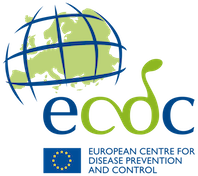The EU Initiative on Health Security aims to strengthen partner countries’ capacities to assess, detect, respond and prevent threats from communicable diseases, as well as enhance regional cooperation.
This training on in-action (IAR) and after-action reviews (AAR) is part of the initiative’s efforts to address preconditions for efficient public health systems. IAR and AAR are qualitative, structured reviews of actions taken in response to a public health event, as a means of identifying and documenting best practices, gaps, and lessons. They enable improvements and strengthening in preparedness and response planning.
Dates and duration: TBD (Q3, 2024)
Audience: The training is designed for professionals working in ministries of health and public health institutes who are involved in preparedness, response, and recovery related to outbreaks of infectious diseases.
Objectives: After completing this training, participants should be able to:
- Explain the importance of conducting post-event reviews during or following a public health emergency as good practice and for resilience purposes
- Discuss the in-action (IAR) and after-action review (AAR) requirements, methodologies, and outcomes
- Discuss the use of evidence in advice- and policymaking
Participation: This training is not open for self-enrolment. Participation is through invitation only.
